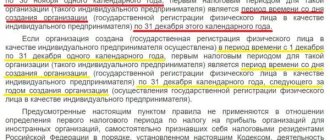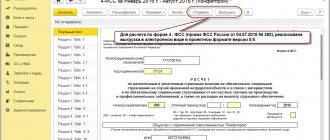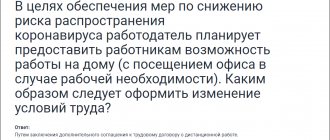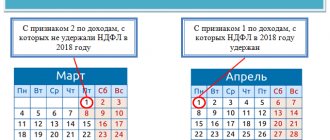Currently, the law does not have clear rules of law governing the issue of suspension of the contract. However, civil legislation is dispositive in nature, and therefore, since the civil code does not contain a prohibition on suspending the operation of an agreement, the agreement can be suspended by agreement of the parties, as well as unilaterally.
ATTENTION : our contract lawyer will help you deal with the suspension of the contract, the settlement of a dispute under the contract with the other party: professionally, on favorable terms and on time. By the way, watch the video with a proposal for drawing up any contract in 24 hours!!!
About force majeure
The basic definition of the term is contained in Art. 401 Civil Code of the Russian Federation. This refers to extraordinary circumstances of force majeure. Their occurrence is not related to the behavior of the counterparty. Force majeure does not terminate the contract, but exempts from sanctions for its violation.
In Russia, the compelling circumstance is not the epidemic itself, but government restrictive measures. The conclusion of the Chamber of Commerce and Industry will help make it easier to prove the fact in court. In the spring of 2021, regional associations received the right to issue documents on internal transactions. Now the service is provided free of charge (letter No. PR/0315). Previously, conclusions were issued only for foreign economic contracts on a paid basis.
The Bank of Russia (message dated March 17, 2020) and the Federal Antimonopoly Service of the Russian Federation (letter No. IA/21684/20) have already announced the non-application of sanctions under agreements in connection with the pandemic. Officially, the threat of coronavirus infection is recognized as force majeure only in some regions. Officials spoke unequivocally on this issue:
- capital and Moscow region;
- Perm and Primorsky territories;
- Karachay-Cherkessia;
- Sevastopol;
- Karelia;
- Crimea;
- Republic of Mari El.
The list includes Arkhangelsk, Bryansk, Vologda, Ivanovo, Kurgan, Novosibirsk, Nizhny Novgorod, Orenburg, Tver and Tula regions. The list is updated daily.
However, the announcement of classifying the coronavirus as force majeure is not enough. There is no automatic release from liability. Prohibitions and restrictions imposed by the authorities should actually prevent the execution of the transaction. Here's an example:
| Grocery store | Decorative cosmetics salon |
| Trading continues as normal during the self-isolation period. The situation is not recognized as force majeure. | The sale of goods until April 30, 2021 is stopped by regional decree. The owner has the right to refer to insurmountable circumstances. |
When declaring force majeure, it is important to remember the time limits. Parties to the agreement are exempt from sanctions for non-compliance only for the period of force majeure. This means that rent arrears will have to be paid immediately after government restrictions are lifted. Otherwise, the counterparty will charge a penalty.
Design details
Before terminating the contract, the initiator must notify the other party of his decision. It is sent by mail or delivered in person.
If a refusal is received, the case is sent to an arbitration court for consideration. It is important to have indisputable facts that will help confirm the plaintiff’s case.
The application can be submitted after the moment when the observation stage and peaceful resolution of the conflict ends. It is important to confirm that the plaintiff took all measures to resolve the issue, but the defendant did not cooperate.
To formalize the termination of the contract, you must use the same form as when concluding it. A document is drawn up with the involvement of specialists from the State Land Agency.
When terminating a lease agreement or assigning rights, it is necessary to draw up an agreement that specifies:
- date and place of compilation;
- personal and passport data of the parties;
- name of the lease document indicating the date of conclusion and number, as well as the cadastral number of the plot;
- the moment of termination of the agreement;
- number of prepared copies;
- place of execution of the agreement;
- signatures of the parties.
It is important to remember that when determining the grounds, it is necessary to rely on the lease agreement concluded at the auction or between the parties. If one of the points is violated, termination can be initiated. If the other party refuses, then it is worth visiting the judicial authorities.
Due to frequent changes in legislation, information sometimes becomes outdated faster than we can update it on the website. via the form (below), and our specialists will promptly prepare the best options for solving your problem and call you back on the day you submit your application. It's free!
To pay or not to pay
Recognizing the pandemic as force majeure will not solve the main problem. Lease arrears will accumulate. Even in the absence of fines, the parties to the transaction will be faced with the need to pay for it. With zero revenue, this threatens serious financial difficulties and even bankruptcy.
You cannot simply refuse to pay bills under the agreement. The tenant will have to notify the counterparty of force majeure or enter into negotiations in order to find a joint solution. The actual non-use of real estate does not stop accruals under the transaction.
Law No. 98-FZ dated April 1, 2020 will help you find a way out of the situation. The regulatory act gives the Russian Government the authority to introduce high alert or emergency regimes. The same document defines the features of regulation of rental relations.
Cost reduction
The April law gives participants the right to demand a reduction in the cost of using real estate. Insisting on a price revision is allowed when a state of emergency or high alert is introduced in the region. Changes to the contract can be made throughout 2021. Counterparties must document their decision. To do this, you will have to draw up an additional agreement.
The norm caused a heated debate among lawyers. Human rights activists argue about the advisability of limiting freedom of pricing and fear abuse. The period for rent reduction remains unclear. Article 19 provides only general language. They can be interpreted in different ways. Business representatives insist on reducing rent for the entire 2021. Property owners agree to a discount for the period of actual downtime.
Lawyers recommend developing fee reduction schemes taking into account its structure.
| Component part | Ways to reduce |
| Communal payments | The tenant can stop operations by temporarily eliminating the consumption of electricity, water and other services. The reduction in fees will be due to changes in the accounts of supplying organizations. |
| Rent body | The discount is provided by adjusting the accrual algorithm. The parties have the right to choose the most convenient and fair option (fixed rate, percentage of revenue or turnover). |
| Accompanying services | Eliminating cleaning, postal services, security and other options will help reduce the rent. |
In all cases, it will be possible to reduce the cost of rent only with mutual agreement of the parties. The owner is obligated to make a discount only if he provides evidence of the impossibility of using the property (Part 3, Article 19 of Law 98-FZ). Alas, the method of confirming such a fact is not described in the normative act.
Termination of contract due to coronavirus
Organizations and entrepreneurs affected by the pandemic may cancel their lease early. The corresponding right arises for them by virtue of Art. 451 Civil Code of the Russian Federation. The threat of mass infection with coronavirus, government bans and restrictions - all this falls under the definition of a significant change in circumstances. This situation cannot be foreseen even with due diligence.
The mechanism is universal, but judicial practice in this area is developing slowly. The norm allows not only to terminate, but also to change the agreement. This procedure is suitable for agreement on an individual basis:
- rental holidays;
- partial debt write-off;
- temporary reduction of tariffs;
- inclusion or removal of rental-related services;
- correction of the intended use of premises, etc.
Practicing lawyers report attempts by landlords to classify the pandemic as a business risk. The opponents' interest boils down to collecting compensation for unilateral termination of the contract. In such situations, businessmen are advised to rely on analytical reports of in-house economists and accountants. If during the disputed period the losses reach extreme levels or clearly go beyond the usual limits, the changes will be considered significant. The landlord will not be able to demand payment of the fine.
The counterparty must be notified in writing of the termination of the relationship. The introduction of a high alert or emergency situation does not exempt from the acceptance and transfer procedure. The tenant must return the property to the rightful owner with the drawing up of a deed. If the other party refuses acceptance, the fact should be recorded. Invitations-notices with a mark of delivery, as well as a notarized protocol, are suitable as evidence of good faith. Otherwise, there will be a risk of debt formation and its collection in court.
Upon termination of the transaction with reference to Art. 451 of the Civil Code of the Russian Federation, losses are distributed evenly between the parties. If the participants fail to agree, the issue is resolved by the court.
The coronavirus pandemic as a basis for changing the real estate lease agreement
Among the “anti-virus” measures urgently taken by the state, almost unnoticed were the norms aimed at protecting the rights of tenants of real estate (not only state and municipal property, but also, based on the text of the norm in question, also privately owned property) .
04/01/2020, Federal Law dated 04/01/2020 N 98-FZ “On Amendments to Certain Legislative Acts of the Russian Federation on the Prevention and Response to Emergency Situations” was adopted and immediately came into force
In this bill, in addition to the “moratorium on bankruptcy” that caused a wide resonance, as well as a number of other tax and administrative measures, there is article 19 with the following content:
"1. To establish that in relation to lease agreements for real estate concluded before the adoption in 2021 by the state authority of a constituent entity of the Russian Federation in accordance with Article 11 of the Federal Law of December 21, 1994 No. 68-FZ “On the protection of the population and territories from natural and man-made emergencies” character" (as amended by this Federal Law) of a decision to introduce a high-alert regime or an emergency situation on the territory of a constituent entity of the Russian Federation, within 30 days from the date of application by the tenant of the relevant real estate object, the lessor is obliged to enter into an additional agreement providing for a deferment of payment of the rent provided for in 2021. Requirements for the conditions and terms of such a deferment are established by the Government of the Russian Federation.
2. The amount of rent under real estate lease agreements concluded before the adoption in 2021 by a government body of a constituent entity of the Russian Federation in accordance with Article 11 of the Federal Law of December 21, 1994 No. 68-FZ “On the protection of the population and territories from emergency situations of natural and man-made" (as amended by this Federal Law) decisions on the introduction of a high alert regime or an emergency situation on the territory of a constituent entity of the Russian Federation may be changed by agreement of the parties at any time during 2021.
3. The tenant under real estate lease agreements has the right to demand a reduction in rent for the period 2021 due to the impossibility of using the property associated with the adoption by a state authority of a constituent entity of the Russian Federation in accordance with Article 11 of the Federal Law of December 21, 1994 No. 68-FZ " “On the protection of the population and territories from natural and man-made emergencies” (as amended by this Federal Law) decisions on the introduction of a high alert regime or an emergency situation on the territory of a constituent entity of the Russian Federation.”
Before proceeding directly to the analysis of the stated rules, it should be noted that these provisions, based on their literal interpretation, apply to any lease agreements for real estate, including: a) both real estate in state or municipal ownership, and property owned on the right of ownership to citizens and legal entities; b) both buildings, structures, premises, other capital construction projects and their parts, as well as land plots, forest plots, subsoil plots, and other real estate of a “natural nature”. It is obvious that by virtue of clause 2 of Art. 615 of the Civil Code of the Russian Federation, these rules also apply to sublease agreements for real estate.
Further, point by point:
Clause 1 – establishes the landlord’s obligation to enter into an additional agreement to postpone the payment of rent within 30 days from the date of the tenant’s application.
The conditions and terms of such a deferment are established by the Decree of the Government of the Russian Federation by Decree of the Government of the Russian Federation dated 04/03/2020 N 439.
The right to deferment applies to real estate lease agreements concluded before the introduction of a high-alert regime in the relevant constituent entity of the Russian Federation (in Moscow - this is 03/05/2020 in accordance with Decree of the Moscow Mayor No. 12-UM, in the Moscow region - 03/13/2020 in accordance with the Resolution Governor of the Moscow Region dated March 12, 2020 No. 108-PG), and does not apply to the rental of residential premises.
Not all tenants have the right to receive a deferment (as it may seem from the wording of the law), but only organizations and individual entrepreneurs related to the most affected sectors of the economy, the list of which was approved by Decree of the Government of the Russian Federation dated April 3, 2020 No. 434:
— Air transportation, airport activities, road transportation (OKVED 49.3, 49.4, 51.1, 51.21, 52.21.21, 52.23.1);
— Culture, organization of leisure and entertainment (OKVED 90);
— Physical education and health activities and sports (OKVED 93, 96.04, 86.90.4);
— Activities of travel agencies and other organizations providing services in the field of tourism (OKVED 79);
— Hotel business (OKVED 55);
— Public catering (OKVED 56);
— Activities of additional education organizations, non-state educational institutions (OKVED 85.41, 88.91);
— Activities for organizing conferences and exhibitions (OKVED 82.3);
— Activities to provide household services to the population (repair, laundry, dry cleaning, hairdressing and beauty salon services) (OKVED 95, 96.01, 96.02)
The fact that a particular business is classified as the “most affected industries” is established based on the code of the All-Russian Classifier of Types of Economic Activities ( OKVED), indicated as of 03/01/2020. in the information of the Unified State Register of Legal Entities or Unified State Register of Individual Entrepreneurs about a specific organization or individual entrepreneur. In the absence of the specified type of activity in the information of the Unified State Register of Legal Entities or Unified State Register of Individual Entrepreneurs (this can be easily verified by ordering an extract on the official website of the Federal Tax Service of Russia egrul.nalog.ru), the right to deferment in accordance with the stated rules of law is formally absent.
At the same time, we believe that organizations and individual entrepreneurs that actually carried out these types of activities as their main activities (for example, provided hotel services, catering services, consumer services, etc.) have the right to raise before the court the question of providing them with a similar delays, based on the principle of the constitutional principle of equality of all before the law and the court (Article 19 of the Constitution of the Russian Federation, Article 1 of the Civil Code of the Russian Federation). A situation in which inaccurate or irrelevant information is entered into the Unified State Register of Legal Entities or the Unified State Register of Individual Entrepreneurs may be grounds for bringing entrepreneurs to administrative liability in the form of a one-time fine (Part 4 of Article 14.25 of the Code of Administrative Offenses of the Russian Federation - a fine of 5 to 10 thousand rubles), but not may be a reason for refusal to apply support measures provided for by law, if there is evidence of the implementation of such activities as the main one. We believe that there are good prospects for substantiating this position in the framework of a potential legal dispute.
The terms of the installment plan are as follows:
- a deferment is provided for rental payments due from the date of introduction of the high-alert regime (03/05/2020 in Moscow and 03/13/2020 in the Moscow region) and until 10/01/2020, while during the period of validity of the high-alert regime, the payment deadline of 100% is postponed rent, and after the end of this regime and until 01.10.2020. – in the amount of 50% of the rent;
- rent arrears must be paid no earlier than January 1, 2021 and no later than January 1, 2023, in stages no more than once a month, in equal payments, the amount of which does not exceed half the monthly rent under the lease agreement;
- penalties and fines for late payment of rent are not assessed;
- establishing additional payments for the right to take advantage of the deferment is not allowed;
- if the contract separately allocates fees for utility and operating expenses, then this part of the rent continues to be charged, despite the deferment, unless the landlord himself is exempt from these expenses during the pandemic.
In order to avoid a huge wave of litigation about forcing the conclusion of additional agreements (which are still unknown when they will be considered), the legislator should have provided for the tenant’s right to unilaterally change the agreement in accordance with the conditions and deferment periods established by the Government of the Russian Federation, or provide for an “automatic” change in the terms of the agreements. There is no need for a legal dispute in conditions where the lessor is absolutely obliged to sign such an additional agreement (and he actually has nothing to object to in court if the conditions and period of the deferment meet the established requirements).
At the same time, since the law does not indicate otherwise, in order to exercise the right to receive a deferment, it is necessary to send to the lessor a draft additional agreement on amendments to the lease agreement, and in case of its refusal or “silence” within 30 days, an appeal to the court with a demand on compulsion to conclude an additional agreement (in this case, it will be concluded on the basis of a court decision with a “retrospective” date - from the date of introduction of the high alert regime).
Termination of the lease agreement by the lessor due to late payment of lease payments or the accrual of penalties (penalties) for late payment of rent during the period in question (including during the period of the dispute and before the signing of the additional agreement) will be illegal.
Clause 2 - establishes the right of the parties to enter into an additional agreement on changing the rent for 2020.
To be honest, I don’t see any legal content in this norm, since even without it it is clear that, by virtue of Art. 450 of the Civil Code of the Russian Federation, the parties have the right to change the terms of agreements previously concluded by them.
Most likely, this provision is intended to have a certain “motivating” orientation (reflecting the “opinion of the party” in a difficult period), therefore it will not have a real regulatory impact on business entities.
Clause 3 is , in my opinion, the most interesting clause, which provides for the tenant’s right to demand a reduction in rent for 2021 in the event that the use of the leased property turned out to be impossible for reasons related to the high alert regime and restrictions introduced in connection with this.
This norm also represents a special norm in relation to Art. 451 Civil Code of the Russian Federation. In general, the question that deserves a separate discussion is whether anything will “remain” from Article 451 of the Civil Code of the Russian Federation in relation to rental legal relations after the adoption of the bill under consideration - that is, whether it is possible, for example, to demand changes to other terms of the lease agreement not specified in paragraph. 1 and 3 tbsp. 19 of the bill (I believe that, of course, the introduced innovations should be considered as specifying the provisions of Article 451 of the Civil Code of the Russian Federation, but not exhausting its content).
Since the law does not define any clear criteria for the “impossibility of using property,” it is on this point that one should expect the largest number of controversial situations that will inevitably result in legal proceedings.
In fact, there are two approaches to interpreting the concept of “impossibility of using property” - literal and expansive. In the first case, such property should include only those facilities that were forced to close due to a direct indication in the regulations governing the legal regime of “high alert” (for example, all facilities serving citizens, except for food stores, pharmacies, etc.). d.). In the second case, such objects should also include those that were not required to cease operations due to the restrictions introduced, but in fact could not be operated in conditions where the work of counterparties stopped, etc. (for example, construction on a rented land plot is temporarily frozen due to the transition of suppliers and contractors to “remote work,” or there was a mass illness among workers, etc.).
It is also very interesting that the law does not directly provide for the amount of rent reduction that the tenant is entitled to claim. Here, too, two interpretations are possible - for example, one can proceed from the fact that during the period of impossibility of using the object, rent should not be paid at all (I am sure that this is exactly how the norm will be perceived in practice). At the same time, the complete elimination of the obligation to pay rent is identical to the situation in which the tenant suspends the fulfillment of obligations due to the lessor’s failure to fulfill the counter-obligation to transfer the subject of the lease (Article 328 of the Civil Code of the Russian Federation). It seems that the situation of imposing restrictions due to the coronavirus cannot, in terms of the severity of the consequences for the landlord, be equated with his guilty actions in not transferring the subject of the lease (since we have the courage to assume that the landlord is not directly related to the spread of coronavirus in the Russian Federation). Force majeure circumstances eliminate the debtor's liability in the form of penalties and losses (clause 3 of Article 401 of the Civil Code of the Russian Federation), but do not terminate the fulfillment of the main obligation in the absence of grounds provided for in Art. 416 and 417 of the Civil Code of the Russian Federation (the obligation to pay rent does not apply to these).
Consequently, we can only talk about reducing the amount of rent, but to what extent it is impossible to determine in the absence of regulatory instructions (theoretically, it would be possible, with broad discretion of the court, to distribute risks between the parties, taking into account all factual circumstances and the principles of reasonableness and fairness, however in our case this is unrealistic).
Probably, precisely because of the complexity of determining the terms of the amended contract, the general consequence of “significantly changed circumstances” is the termination of the contract, and not its change, which is allowed only in exceptional cases (Clause 4 of Article 451 of the Civil Code of the Russian Federation). In these conditions, when the legislator has nevertheless given the tenant the right to demand a change in the contract, the courts, in the framework of numerous disputes that are expected on this issue, will most likely completely refuse to collect rent for the period of forced downtime.
Thus, the bill under consideration contains a number of revolutionary provisions regarding the regulation of the rights and obligations of the parties under real estate lease agreements. The actual content of the adopted norms, taking into account their high degree of uncertainty, will depend on judicial practice, which will have to find such a difficult balance between the interests of landlords and tenants.
Suspension of the agreement
Article 19 of Law 98-FZ dated April 1, 2020 obliges the lessor to provide the partner with a deferment. The mechanism applies to contracts the subject of which is real estate. The condition is to submit a written application. 30 days are allotted for its consideration.
The procedure for granting a deferment was approved by government decree No. 439. The key conditions are:
- Agreement date . The rules apply if the agreement was signed before the introduction of a high alert regime or emergency situation in the territory.
- Limited time . Rent payments for 2021 can be deferred. The deferment does not apply to debt from previous years. The grace period will be valid until October 1.
- Inclusion in the list . The tenant must be engaged in activities specified in the government list.
- Property status . Participants in agreements the subject of which is non-residential real estate have the right to apply for a deferment. The form of ownership has no legal significance.
The parties establish the settlement procedure independently. However, the scheme must comply with the main goals of the resolution - ensuring the financial stability of the business. Collection of remuneration for deferment is not permitted.
If there is no money to pay...
The most effective solution is negotiations. The settlement process is as follows:
| Stages | Key Aspects |
| Preliminary legal assessment | The tenant will need to build a negotiating position. To do this you need to answer several questions:
Depending on the results of the analysis, a line of defense will be built. |
| Invitation to negotiations | In the current situation, it will not be possible to act solely using legal instruments. Almost all business representatives suffer losses during the pandemic. The courts are overloaded, and the practice is not formed. Now it is advisable to look for compromise solutions and make mutual concessions. It is impossible to talk about benefits in the spring of 2021. Success will be considered an even distribution of damages between the parties, maintaining the financial stability of the business and established business relationships. During the negotiation process, it is important to convince the partner of the need to use the mechanisms of Law 98-FZ of 04/01/2020. Mediators are ready to provide professional assistance to businessmen. |
| Additional agreement | If, as a result of the negotiations, the parties come to a decision, it will need to be recorded. An agreement is drawn up for this purpose. It becomes an integral part of the lease agreement. |
Various arguments will help convince the landlord to make concessions. So, entrepreneurs can bet on the following points:
- Room area . In an economic downturn, finding a partner willing to take over a large property is not easy. The owner is interested in maintaining relationships with key partners.
- Long-term cooperation . The landlord can be guaranteed a long-term partnership. To do this, the term of the transaction should be increased by several years. This will allow the counterparty to plan its income for the future. Particular attention should be paid to reliability (for example, the absence of late rent payments before the pandemic).
- Investments . The tenant will be interested in the partner if he agrees to undertake major repairs or inseparable improvements. You can do this during a period of forced downtime. Bartering services, works or goods would also be an interesting solution.
- Social significance . During negotiations, it is worth emphasizing the essence of business, its role in supporting the population, and also appealing to the general civil position.
- Causes and consequences . Indicating the direct impact of the pandemic on the tenant’s financial condition will also help convince the partner of the need for concessions.
- Joining forces . If we are talking about shopping complexes occupied by several organizations, you can conduct a dialogue with the landlord together. The threat of losing a significant number of partners makes opponents more accommodating.
If the owner of the building refuses to give in, and there is no money to pay the debt, he will have to defend his interests in court. With a complete lack of funds, the business is left with the last tool. Loss of solvency forces you to file bankruptcy. The temporary moratorium applies to creditors. However, according to the rules of Law 127-FZ of October 26, 2020, the head of the company, as well as the entrepreneur, are obliged to personally apply to arbitration if obvious signs of insolvency are identified.
Let's go to court
When preparing for the proceedings, the tenant needs to take into account a number of nuances. Thus, it will not be possible to avoid penalties for late payment if:
- the procedure for notifying the counterparty of force majeure was not followed;
- restrictive measures do not have a direct impact on activities and do not interfere with the proper execution of the transaction;
- the participant refers to sharp fluctuations in exchange rates or the general economic crisis;
- suspension of the tenant's work is a preventive measure (on its own initiative).
When preparing for a trial, it is important to correctly assess the legal nature of the relationship. Thus, lawyers do not always consider references to Art. 417 of the Civil Code of the Russian Federation. A government ban on business does not automatically result in exemption from rent. Regulatory acts will be an obstacle to the provision of services, sale of goods or performance of work. The restrictions will not directly exclude the possibility of using the leased property. In areas, for example, it is still possible to store equipment. This is especially true for outlets that have switched to online trading. If the arguments are not supported by something else, the court will reject them.
Consecutive proof of a number of circumstances will allow you to terminate the lease agreement and avoid losses. In the trial, it will be necessary to confirm the unforeseenness and insurmountability of the established coronavirus prohibitions, and point out the high unprofitability of activities during the disputed period. Particular emphasis should be placed on the inadmissibility of shifting risks to only one party to the contract.
The proceedings will be based on the rules of arbitration or civil procedural legislation. Jurisdiction depends on the status of the participants. The disadvantage of the solution is the need to pay a state fee and the duration. In conditions of overload, you should not expect a prompt solution. However, the cessation of the work of reception offices does not prevent the filing of claims. Documents may be sent by mail or electronically. In this case, the parties will be able to avoid disputes regarding the statute of limitations.
Letter of suspension of the contract
In a situation where an agreement to suspend the contract between the parties is not signed, and the contract is actually subject to suspension, the party that made such a decision is obliged to notify its counterparty about this.
In case of unilateral suspension of the contract, the party must issue a written notice, message, letter to the other party, indicating the reasons for the suspension of the contract and the period, if it can be determined by a specific date.
After this, the notification must be sent to the second party and the party that suspended the work must make sure that the counterparty has received the appropriate notification, since it is from the moment of receipt of the suspension message that the contract can be considered suspended, that is, the corresponding message entails civil law consequences of which the other party must be properly notified.
Brief conclusions
In the spring of 2021, the overwhelming number of Russian businessmen found themselves in a difficult financial situation. Following three rules will help you get out of the crisis:
- Focus on individual legal protection. It is possible to rely on the basic norms of the Civil Code of the Russian Federation only if there is reliable documentary support. Merchants need to record the reasons for refusal to cooperate and return advances, draw up conclusions about force majeure, and monitor their financial condition. Active collection of materials confirming the negative impact of the pandemic will help to free yourself from contractual penalties and achieve a reduction in rent.
- Negotiation. Almost for the first time during the existence of the domestic legal system, the pre-trial procedure is more effective than a full-scale trial. Everyone suffers losses, and therefore a compromise is in the interests of both parties to the transaction.
- Formation of judicial practice. The situation is exceptional. It is impossible to find a ready-made solution in legal reference books. However, human rights activists have a chance to create a modern base of precedents. If the landlord refuses to make concessions, you need to defend your position in arbitration. The development of a strategy should be approached creatively, relying not only on the norms of the Civil Code of the Russian Federation, but also on basic economic laws, cause-and-effect relationships and logic.
Highlights in 2021
In order for a contract to be terminated, grounds are required. They are prescribed at the legislative level, so the parties can familiarize themselves with them in advance. It is important to remember that the initiator of the breakup must notify the other party of his decision.
The main points regarding termination of the contract are contained in the Civil Code of the Russian Federation. It specifies the procedure and rules for working with documents.
In cases where the lease of a land plot is terminated, it is necessary to refer to the Land Code of the Russian Federation. Article 46 of the regulatory legal act fully contains all the rules.
Article 46. Grounds for termination of land lease
The contract can be terminated early by a court decision. These situations are provided for in the presence of a relationship between an individual and a municipality. If one of the parties does not agree to make concessions, it is necessary to contact the Arbitration Court.
The decision is made on the basis of the norms of the Civil Code of the Russian Federation. Article 2 of the Land Code of the Russian Federation notes the need to refer to this legal act when resolving issues. Difficult points are described in Article 46 of the Land Code. Registration of ownership of a land plot at the MFC is a convenient way to resolve all issues and submit documents.
Read how to find out the permitted use of a land plot online.
When going to court, it is important to have sufficient grounds for terminating the land lease agreement. In this case, the authorities will be more focused on terminating the agreement.
The reasons for which a contract can be terminated are noted in Articles 619 and 620 of the Civil Code of the Russian Federation. If the norms of the Land Code and civil legislation are not enough, you can turn to environmental and natural resource documents.
Article 619. Early termination of the contract at the request of the lessor
Article 620. Early termination of the contract at the request of the tenant
It is possible to terminate the lease if the general terms of the contract are not met, when it is considered that the tenant has not made payments for two consecutive reporting periods. This norm refers to civil law.
The landlord can make an offer.
This measure is taken when:
- using the land plot for purposes other than those specified in the agreement;
- decrease in soil fertility;
- negative impact on the environment of work carried out on the site;
- harm to fertility, poisoning of agricultural land with various chemicals;
- non-use of a plot of land for three years if it was allocated for agriculture or construction;
- seizure of an allotment in which the administration of a locality or government authorities participate.
We invite you to familiarize yourself with: Transactions with a delayed entry into force
Sometimes an agreement cannot be terminated. This is provided for during agricultural work at the moment. Also, individual cases are specified in federal legislation.
The tenant can also make a proposal to sever the relationship. This is provided if he was not notified of the poor condition of the land.
Also, early termination may be due to the identification of hidden defects in the allotment. Termination is permitted if the landlord interferes with the tenant regarding the use of the premises.
The initiator of termination of the lease agreement must notify the other party of his decision. For this purpose, a special notice is drawn up within the period prescribed by law. The written document reflects the reasons why further relations are impossible. It is necessary to refer to the clauses of the contract.
It is important to give notice within a certain time frame. The terms are specified in the contract itself. For example, it may be specified that notice is given a week or month before the proposed termination.
You must wait for a response from the other party within a month.








